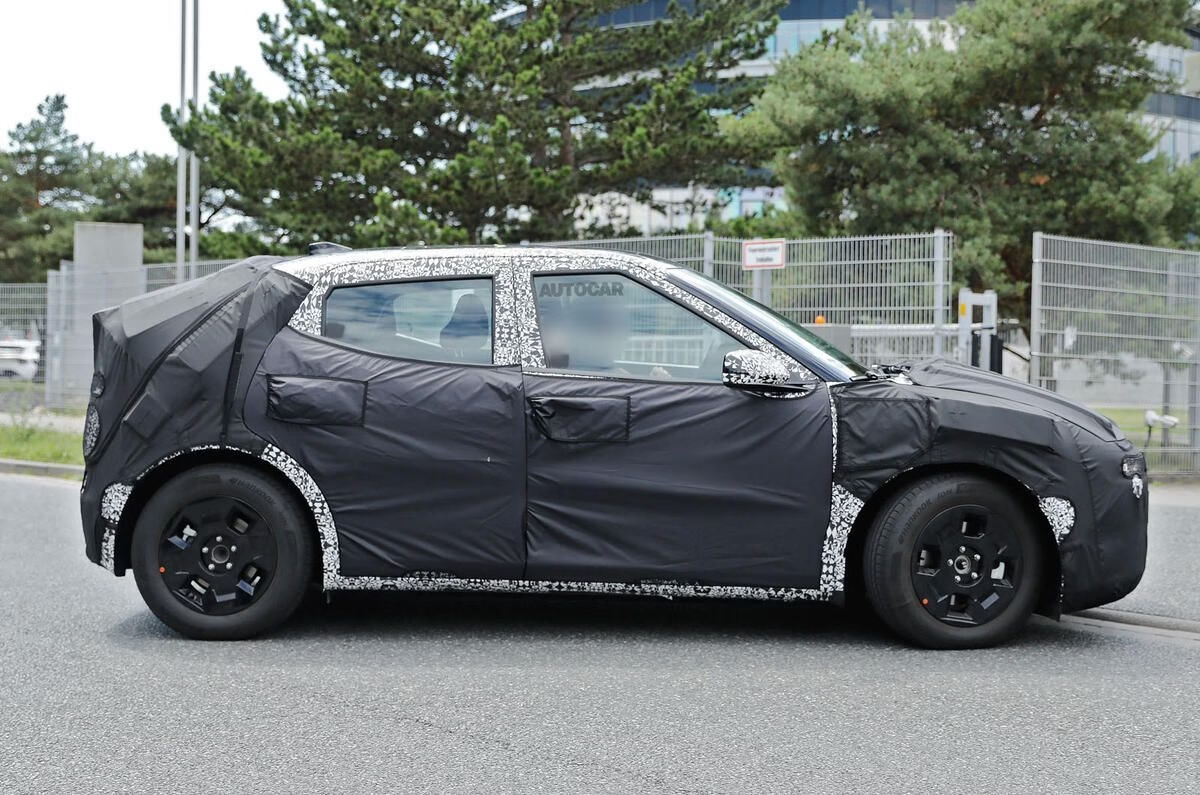Hyundai is preparing to expand its electric lineup with the upcoming Hyundai Ioniq 2 EV, which has recently been spotted testing internationally.
Designed as an entry-level urban electric vehicle (EV), this compact hatchback could become a strong contender in the Indian market by late 2026. Focusing on affordability and practicality, the Ioniq 2 is expected to strike a smart balance between modern styling, everyday performance, and electric efficiency.
Its global launch will target buyers looking for a premium yet accessible EV. If Hyundai launches it in India, the Ioniq 2 could redefine the small EV segment for city dwellers and young urban drivers.
Hyundai Ioniq 2 EV: Design and Dimension
The Hyundai Ioniq 2 features a traditional five-door hatchback design, with a silhouette reminiscent of the current-generation i20.
Aesthetically, it boasts a clean front fascia with LED headlights, a clamshell hood, sharp body lines, and a tapering rear profile that echoes the Genesis GV60’s glass kink.
The vehicle is expected to measure approximately 4.0 meters in length, making it suitable for urban use and tight parking spaces.
Its minimalist yet futuristic design gives it a commanding road presence, appealing to both Gen Z and practical buyers.

Powertrain and Performance
The Ioniq 2 is anticipated to be built on a front-wheel-drive version of Hyundai’s 400V E-GMP platform, which has proven reliable in other Ioniq models.
It may come equipped with a single electric motor generating close to 150 horsepower, paired with a battery pack that offers a real-world range of around 400 kilometers. Fast charging capabilities are likely, and regenerative braking will enhance overall efficiency.
This setup will focus on urban agility and commuter-friendly dynamics, making it suitable for Indian driving conditions if localized production is pursued.
Safety Features
While official safety specifications have yet to be disclosed, the Ioniq 2 is expected to incorporate Hyundai’s latest safety technology.
Anticipate features such as multiple airbags, electronic stability control (ESC), tire pressure monitoring system (TPMS), anti-lock braking system (ABS) with electronic brake distribution (EBD), and a robust crash structure based on the E-GMP architecture.
Higher variants might include advanced driver-assistance systems (ADAS), parking sensors, and a 360-degree camera, meeting global standards and aligning with expectations in the premium compact EV market.

Expected Price and Rivals
In Europe, Hyundai aims to price the Ioniq 2 around €20,000, which translates to approximately Rs 18–20 lakh in India. If launched, it will compete with upcoming models such as the Tata Curvv EV, MG Comet EV facelift, and Maruti’s small electric SUV.
Additionally, it may indirectly rival vehicles like the Citroen eC3 and the Kia EV3 in terms of pricing and practicality, offering better brand recognition and potentially more advanced features.



